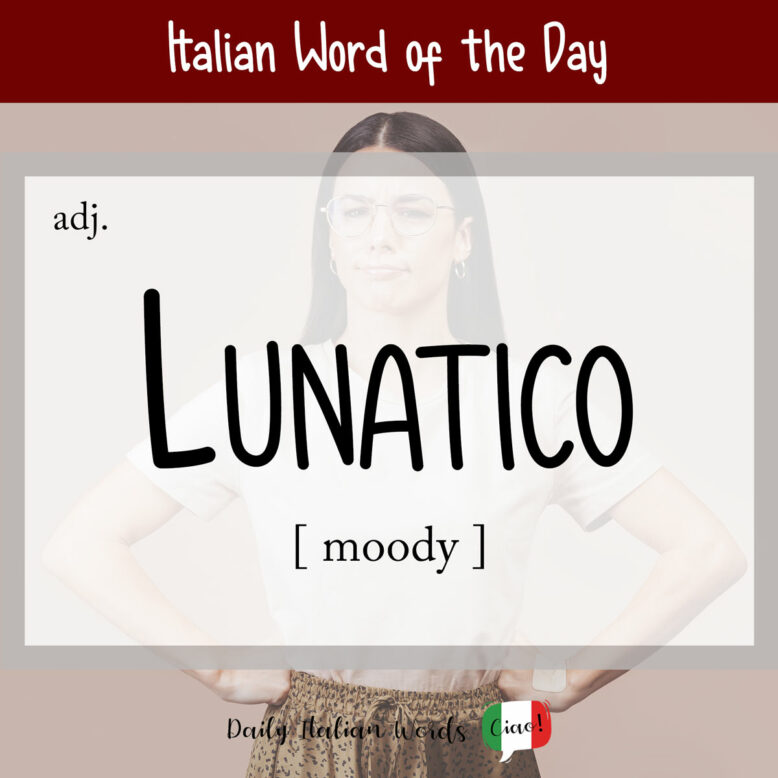The adjective lunatico in Italian is used to describe someone with a fickle and inconstant character, who is subject to mood swings or sudden outbursts of anger. Although it shares the same origin as the English word lunatic, its meaning is closer to moody or temperamental.

Learn with our video
Lunatico comes from the Latin lunaticus, the word for someone who suffers from recurrent bouts of madness according to the phases of la luna (the moon).
Because it is an adjective, it also has feminine and plural forms:
- lunatico = masculine, singular
- lunatica = feminine, singular
- lunatici = masculine, plural
- lunatiche = feminine, plural
Mio fratello è lunatico. Vivere con lui non è facile.
My brother is moody. It’s not easy living with him.

When used as a noun, lunatico and its feminine equivalent lunatica translate as moody person.
Quel lunatico di mio fratello mi ha fatto impazzire oggi!
That moody brother of mine drove me crazy today!
In ancient Italian, it used to refer to someone who was prone to epileptic seizures. This is because, at the time, it was thought that epilepsy was caused by the moon.
This article is also available in video format on our YouTube channel. The audio version can be found on Podbean, Google Podcast, Apple Podcast and Spotify.
Heather Broster is a graduate with honours in linguistics from the University of Western Ontario. She is an aspiring polyglot, proficient in English and Italian, as well as Japanese, Welsh, and French to varying degrees of fluency. Originally from Toronto, Heather has resided in various countries, notably Italy for a period of six years. Her primary focus lies in the fields of language acquisition, education, and bilingual instruction.


